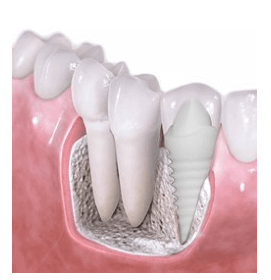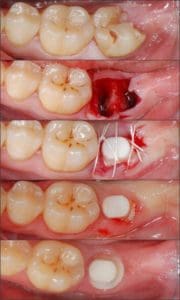How Long will it Hurt After Dental Implant Procedures?
Contact Dr. Adams for a complimentary consultation or 2nd opinion
The usual recovery period for dental implants is usually 5-7 days when any symptoms at all should reduce to minimal or no pain at all. Normally people can return to work right away provided they have not been sedated for implants. There are many patients who never experience any pain. Dental implant surgery itself causes very little trauma and normally minimal if any pain with one reason being there are very few nerves in jaw bone. During the first 1-2 days after dental implant Surgery, there may be some dull achy pain with some occasional throbbing controlled by prescription medication. 3-5 days after an Implant procedure, you should feel mild to moderate soreness and maybe a very small amount of aching at night time. This is the absolute worst case scenario. If there is any more pain than what is described above, you should call your implant dentist.
Bone Grafting and Extractions Increases Recovery Time
Dental implant surgery by itself is usually not painful at all. Implant surgery is often done at the same time as many other procedures (for example, extractions and bone grafts). Many of these other procedures can have different healing times and may themselves cause additional soreness, inflammation and pain. PRF is a technique that accelerates implant recovery and reduces pain and swelling.
Immediate Implant Placement After Tooth Removal
If you fracture a front tooth, it needs to get fixed or replaced ASAP. If the tooth cannot not be repaired, the ideal treatment is emergency removal and replacement with a dental implant. Of course you want to get a new tooth right away. In this scenario, you would undergo a tooth extraction procedure, bone grafting and implant surgery all at one time. Of course, an accident causes trauma when a tooth is broken,
Some Bone Grafts are more invasive than Others
Bone grafts can be minor or major. During trauma, part of the bone can break with the tooth. Replacing a volume of bone, (Block Bone graft), take additional time. Longer surgical times cause more pain and swelling after. Obviously, this procedure is going to be more painful. Placement of implant is usually easy and much less traumatic than tooth removal. After extraction, the implant is placed approximately in the the same site. Once the tooth is out, any bone grafting is done, implant is placed, stitches. After, immediate implant surgery most people do not suffer more than moderate pain for 1-3 days. The pain is controlled by prescription medications.
Implant Surgery Alone Causes Very Minimal Pain
Implant surgery usually does not hurt that much because there is very little trauma. Other procedures with implants can cause additional, but manageable pain. What little pain there is with implants, the reward is permanent tooth replacement.
Average Dental Implant Recovery Time Line
Days 1-2: Possible dull achy pain with some occasional throbbing controlled by prescription medication.
Days 3-5: Mild to moderate soreness and maybe a very small amount of aching at night time.
Days 5-7: Very minimal to no pain at all
When Can an Implant be done after Tooth Removal?
The best time to install a dental implant is at the time of natural tooth extraction. That is called immediate dental implant placement. The results of Dental Implants are better when you place a dental implant at the time of tooth extraction. Removing teeth and placing implants at a later time causes bone and gum loss. It also puts a patient through two procedures versus one. Two procedures normally costs more time and money too (note: It is usually necessary to do a bone graft in an extraction site to preserve bone for a future implant. Sometimes Immediate Implants do not require a bone grafting.). In some cases where there is a lot of infection It maybe necessary to place a dental implant at a later date. It is best to wait a very short period of time to prevent bone loss. In some cases, It maybe necessary to do a bone graft and have it heal prior to placing an implant. In my experience, this happens 25% of the time.
Can I get an Implant and a bone graft at the same time?
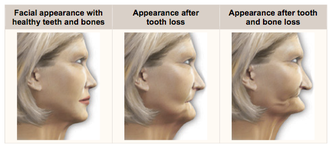
It is best to do an implant and a bone graft at the same time. The implant Provides a structure and a base for the new bone to grow up and around. Bone grafting may need to be done before placing implants if there is too much infection and bone loss or if there is not enough bone to place an implant.
Are bone grafts always necessary with Implants?
No. If there is enough bone present to place an implant, than no bone graft is necessary. There is adequate bone when there is enough bone height, width and quality of bone to place an appropriate size implant to replace the missing tooth. Common situations where there is adequate bone is 1) a previous extraction site where the site healed favorably and enough bone remains to place a dental implant 2) a site where a tooth is extracted and an implant is placed into the same extraction site.
So, How long does it take to heal after dental implants? Really how long it takes for an implant to heal depends on what needs to be done to get an tooth replaced with an implant. There a really 3 implant healing scenarios:
- implant can be placed right away with no need for a bone graft. The healing period in this case is 3 months and then there is osseointegration of bone and a crown can be placed on the implant root.
- implant can be placed right away but it may be done at the time of extraction and bone grafting. In this case, the healing period is 3-4 mos.
- implant cannot be placed right away. There is a need for a bone graft to be placed and a preliminary 4 month healing period prior to an implant being placed. Then an implant can be placed with upto another 4 month implant healing period. In this scenario, the total implant healing period is 8 months.
Are dental implants better than dentures?
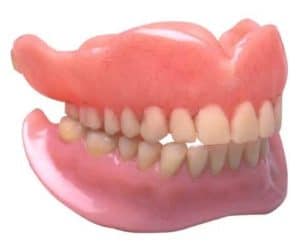
Partial dentures will lead to more tooth loss because it connects to remaining teeth and leverages them. Partial dentures ultimately lead to more tooth loss. Dental implants replace teeth, function and prevent bone loss. Dentures artificially replace teeth with fake prosthetics that stick or clip onto teeth or gums in the mouth. Dentures are not stable and since they do not replace tooth/root structure, there is still further bone loss. Implants look, feel and function similar to natural teeth. They also usually last a lifetime.
How painful is the dental implant procedure?
Dental Implant procedures do not normally cause much pain at all. There is not much trauma caused by the procedure and there are very few nerves in jawbone. Most individuals experience very minor symptoms that go away a week after a dental implant procedure. Procedures done with dental implants such as bone grafts and gum grafts and tooth extractions that do cause additional inflammation, discomfort and pain. Most oftenThe pain during any of these procedures is well-controlled by prescription medications.
Should I replace all my teeth with Implants?
It may be more expensive, less predictable and produce a poorer result to fix all your natural teeth versus replacing all your teeth with dental implants, implant crowns and implant bridges. The decision to replace all your natural teeth with dental implants should be weighed very carefully and discussed with your dentist. A consultation with a dentist who has lots of experience doing dental implants and implant crowns and bridges on natural teeth is required.There are many considerations here including The amount time, money and health considerations that need to be weighed. Individuals who have high levels of susceptibility to cavities and gum disease may be better off replacing all their teeth with dental implants. Replacing all your teeth with dental implants is highly predictable, the results are beautiful and typically dental implants last a lifetime. People keeping natural teeth may experience future failures with cavities and gum disease and have future tooth loss. These people will find themselves spending additional money and may eventually find themselves ultimately replacing all the natural teeth with dental implants anyway.
Natural Teeth in good Condition are better than Implants
All things being equal, Individuals with natural teeth that are in good condition are typically happier than individuals with a full mouth of dental implants. Any time you are going to consider spending a lot of money on crowns and bridges and root canals on natural teeth, it is very important to consider the likelihood of future failures. People who are highly susceptible to tooth decay and gum disease are very likely to be disappointed when their teeth fail once again in the future.The key here is to understand your level of susceptibility and be comfortable with your financial investment. If you have tons of money, and do not mind receiving future dental work, It may be better to keep your natural teeth. My point here is not to provide exact advice but rather to provide the rationale and logic for helping you to make the right decision about whether or not you should replace all your natural teeth with dental implants.
Can i have braces after dental implants?
How long does a dental implant process take?
The dental implant process can be completed in as little as 10 weeks. How long the dental implant process takes depends on what needs to be done to replace a tooth. If there is enough bone present to place an implant, the implant only needs to heal for 8 to 10 weeks, at which point a crown can be placed on top of it and the implant process is complete. Many times there is a need for extensive bone grafting. Bone grafting can take up to four months to heal prior to placement of a dental implant. As stated before, the dental implant takes 8 to 10 weeks to heal, so if a site needs a bone graft and a dental implant placed separately, the patient can wait up to eight months to complete the implant process. Every tooth replacement case is different and the condition of the jaw bone in the area where the tooth needs to be replaced, determines how long the dental implant process will take.
Does getting dental implants hurt?
Dental Implants typically do not hurt too much. In fact many individuals receiving dental implants do not feel much of any pain at all. Typically there can be a little bit of soreness and an achey pain for a couple days, but all the pain typically goes away after one week. Most symptoms are controlled by prescription strength medications.
What is the best full set of dental implants
The best full set of dental implants is when individual implants are used with crowns and small bridges to replace all the natural teeth. This solution can take up to 10 to 12 implants per jaw and many individuals will not do this solution because of the high costs. Implant solutions vary in cost based on the number of implants and the type of teeth or crowns that are placed upon the implants. The All on Four Implant solution is a one piece bridge that can be connected to 4 to 6 dental implants and can replace and entire upper or lower set of teeth. This solution is very popular because the implant bridge stays permanently in the mouth and is far less expensive than a full mouth of implants and crowns. Not all implant bridges are the same, some of the teeth are made of plastic and others are made of high quality and very natural looking porcelain and zirconia. Ask questions so you know what you are getting in your mouch. One other solution is an implant denture solution that is removable and involves far fewer implants. An implant denture just like a conventional denture is made of acrylic or plastic teeth. This solution can be very functional and cost effective.
Is Pain After Dental Implants normal?
It is not normal to have much of any pain after a dental implant. If you are having significant pain from a dental implant you should contact your implant dentist. It is normal to have a minimal amount of discomfort for a few days after a dental implant surgery at which point there should be very little to no symptoms after a week.The pain from a dental implant should be very well controlled by prescription medications.
How Successful Are Dental Implants?
Is it necessary to replace a missing tooth?
Are dental implants safe and reliable?
Implants are very safe and reliable. In fact they are more reliable than natural teeth because they are not susceptible to cavities of gum disease.
Can you get invisalign when you have implants?
You can do Invisalign with dental implants, however the natural teeth will move but the dental implant will not. Treatment should be planned so the movement will only be done by the natural teeth and not the dental implant. There are dental orthopedic appliances that will work in situations where there are implants and tooth crowding. The ALF Appliance and DNA Appliance are examples of appliances that will work with dental implants. All this being said, it is better move teeth and grow bone prior to placing dental implants whenever possible.
Oral Surgeon or Regular Dentist for Dental Implant?
Neither. It is best to find a dentist that is very experienced in placing Dental Implants and the implant crowns that go upon them. It is best to find one dentist who does both of these things. A dentist who places and restores dental implants will likely produce the best results for the patient. An implant dentist will see the case from start to finish with the end result in mind and understands every aspect and detail of replacing teeth with dental implants. An implant dentist can replace teeth with dental implants faster, more efficiently and typically for a lower price. I am sure if you asked a regular dentist and an oral surgeon, they would disagree. Everyone is entitled to their opinion, and this is my opinion.
What’s the best type of specialist to see for dental implant?
It is best to see a dental implant specialist. Unfortunately in the field of dentistry because of politics, the dental boards do not recognize any dentist as being an “implant specialist.” You will need to interview your dentist and ask them things like how many implants they have placed and whether they do implant surgery and implant crowns. It is best to find a dentist who has lots of experience with doing implant surgery and implant crowns. An implant dentist that does a lot of dental implants typically has a 3D x-ray machine also called a CBCT cone beam system. 3D Xray machines are very expensive and can only be purchased by a dentist who does a lot of implants. 3D x-ray machines are typically found in offices where they specialize in dental implants. And example of a 3-D x-ray machine is an ICAT. Many implant dentists and oral surgeons have these machines.
How long to dental implants take to heal?
Typically it takes 8 to 12 weeks for a dental implant to heal. Sometimes in areas where the bone quality is not as good or bone grafting is necessary, it can take up to eight months to successfully receive a dental implant tooth.
How old do I need to be go get dental implants?
Do you think I am too old to have dental implants done?
What are the benefits of dental implants?
Dental implants can provide a permanent tooth replacements solution. Dental implants Help people continue to be able to chew and smile and carryout normal life activities. Dental implants prevent bone loss, Provide a stable chewing function and promote overall health. Dental implants do not promote tooth loss as many tooth replacement options have done in the past.
Will dental implants prevent bone loss?
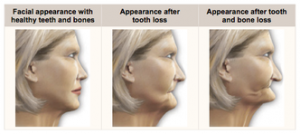
I have metal in my mouth dental implants — anyone know if this would be a problem?
Metal in the mouth can be a problem especially if there are different metals in the mouth. For example an individual can have a gold crown, silver filling and a titanium implant. Care must be taken when there are multiple metals in the mouth. Different metals will react with one another in the mouth causing electricity to flow fromThe different metals. When electricity flows, there is also a magnetic field. This is called a galvanic reaction. Certainly the addition of another metal, Titanium, needs to be considered.
Which material implant is best for an incisor?
Probably a ceramic or Zirconia implant since it is tooth colored and will never show any metal color by the gum line.There are circumstances where the issue of titanium versus zirconia implants needs to be weighed. Generally ceramic is a better choice in the cosmetic zone.
What are the symptoms in a dental implant failure?
Dental Implants versus Partial Denture
Do I need to be put to sleep for dental implants?
No. Unless you have extreme fear. It may be a good idea to be sedated if you are receiving multiple implants and extractions. We offer dental implants sedation


